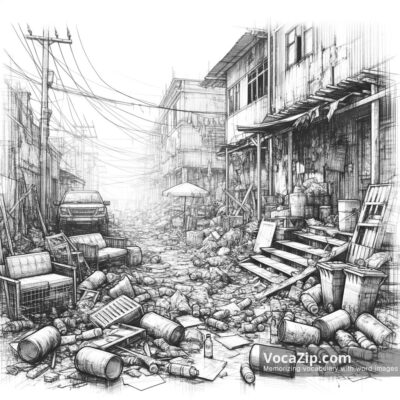waste meaning
waste :
waste, garbage
noun
▪ The waste from the factory is harmful.
▪ The garbage from the factory is bad for the environment.
▪ There is a lot of waste in the park.
▪ There is a lot of garbage in the park.
paraphrasing
▪ refuse – waste material
▪ litter – trash in public places

waste :
to use carelessly, to spend foolishly
verb
▪ Do not waste your time on this.
▪ Do not use your time carelessly on this.
▪ She wasted her money on useless things.
▪ She used her money carelessly on things that are not needed.
paraphrasing
▪ squander – to waste money or time
▪ misuse – to use something wrongly
waste :
garbage, refuse
noun
▪ The waste from the city needs to be cleaned.
▪ The garbage from the city needs to be cleaned.
▪ Reducing waste is important for the planet.
▪ Reducing garbage is important for the planet.
paraphrasing
▪ waste – garbage
▪ refuse – waste material
Pronunciation
waste [weɪst]
The stress is on 'waste' and sounds like 'wayst'.
waste [wɛɪst]
The noun has the same pronunciation as the verb.
Common phrases and grammar about waste
waste - Common meaning
noun
waste, garbage
verb
to use carelessly, to spend foolishly
noun
garbage, refuse
Part of Speech Changes for "waste"
Common Expressions with "waste"
Important examples of waste in TOEIC
Vocabulary examples from the TOEIC test
In TOEIC vocabulary questions, waste often refers to garbage or careless use of resources.
Example of a confusing word: waist (part of the body)
Grammar examples from the TOEIC test
Waste is used as both a noun and a verb, often appearing in questions about resource management.
waste
Idioms and fixed expressions in TOEIC
waste management
'the process of handling garbage', used in environmental discussions.
waste not, want not
means 'if you do not waste, you will not lack'.
Differences between similar words and waste
waste
,
squander
differences
Waste means to use carelessly, while squander often means to waste money or time in a foolish way.
waste
,
misuse
differences
Waste is using something carelessly, while misuse means to use something wrongly or improperly.
Words with the same origin as waste
The origin of waste
Waste comes from the Old French word 'wastier', meaning 'to waste or destroy'. It evolved to mean using carelessly.
Word structure
The composition is unclear.
Words with the same origin
The root of waste is unclear or difficult to confirm.






